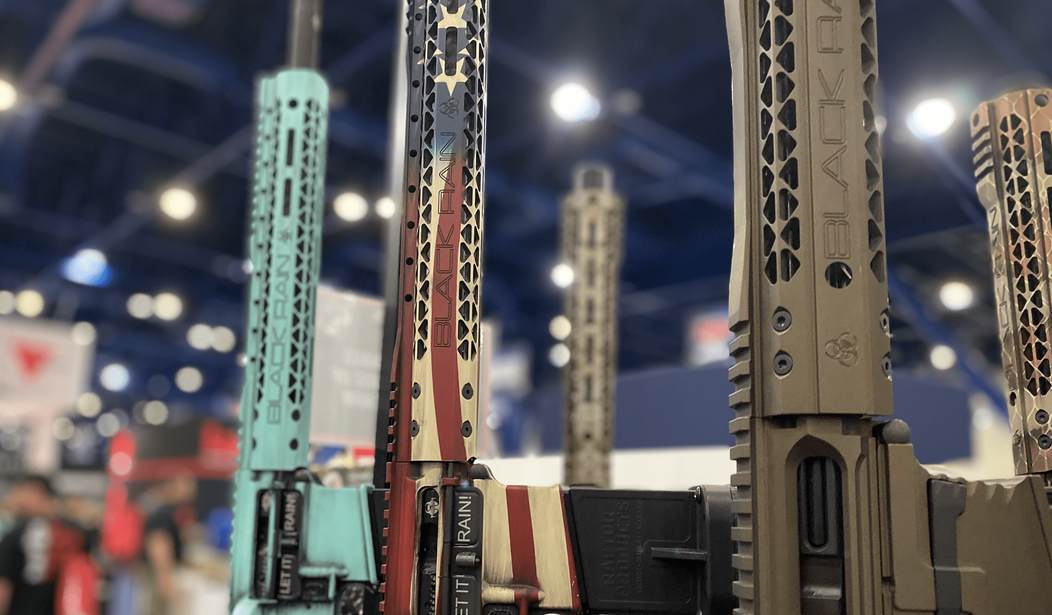Everyone knew what was coming. The result of the Bruen decision meant that “may issue” permitting was a thing of the past. Gun laws were going to have to change.
Over the last few months, they did, and in places like California and New York, they changed in ways that weren’t meant to adjust to the spirit of the new law, but instead look to have been more punitive in nature.
In other words, you’ll take the gun laws we give you and if you challenge them, we’ll make them worse in any way we can manage.
Yet while those laws were claimed to be compliant with Bruen, they’re most definitely not.
Yet the first reason why the new New York law is unconstitutional has nothing to do with the right to bear arms. The law designates an enormous variety of places as “sensitive locations.” Not only does the law prohibit concealed carry licensees from bringing their guns into these locations, the law makes felons of proprietors, owners, and employees who simply possess arms in the location. Thus, a doctor who runs her own practice cannot have a handgun in a lock box in her office. A church cannot have volunteer security guards, such as the former police officer who thwarted a mass shooter at the New Life Church in Colorado Springs in 2007. The same goes for every school of any level, government or independent, regardless of what school wants.
Under the new law, licensed carry is also banned in all forms of public transportation, including in one’s own car on a ferry. All these restrictions defy Bruen’s rule that “new” (emphasis in original) types of “sensitive places” may be authorized by analogy to sensitive places from the nineteenth century and before. Ferries, churches, and doctors’ offices are not “new,” nor are restaurants with a liquor license that serve meals to customers who don’t order drinks. Nor are entertainment facilities. Firearms possession is also forbidden at “any gathering of individuals to collectively express their constitutional rights to protest or assemble.” In other words, if two dozen members of the county branch of New York’s Conservative Party gather anywhere (even in a private home) for a meeting, they may not protect themselves.
Beyond the enumerated list of sensitive locations, bringing a gun into any building is a felony, unless the owner has posted a permission sign or granted express permission. And permit applicants must submit “a list of former and current social media accounts of the applicant from the past three years.”
In California, S.B. 918, presently before the legislature, would expand no-carry areas in a manner similar to New York’s. For the time being, California Attorney General Rob Bonta has urged county sheriffs to apply the statutory “good moral character” on the model of the Riverside County Sheriff’s Department: “Legal judgments of good moral character can include . . . absence of hatred and racism, fiscal stability[.]” The attorney general added that “social media accounts” were fair game for inquiry. Further, denials could be based on “[a]ny arrest in the last five years, regardless of the disposition,” or any conviction in the last seven.
The Truth About Guns quote above is part of a much larger paper on the topic that also goes on to explain how people cannot be denied their civil liberties without a criminal conviction.
The truth is that these gun laws are very problematic. Requiring “fiscal stability” in order to get a carry permit? So people who are bad with money are unworthy of being allowed to bear arms? As noted in the above-linked piece, “absence of hatred and racism” can also be problematic because there are those who think all white people are inherently toxic and evil. Are they to be denied a permit as well, or will this only be a one-way street?
The truth of the matter is that these gun laws likely won’t survive constitutional muster either.
Yet, to be fair, Bruen opened the door for this. It actually makes allowances to deny a permit to certain people based on “suitability.”
The problem, though, is that Justice Clarence Thomas was likely talking about objective requirements. For example, in Georgia, any drug conviction is disqualifying, even if it’s not a felony. That kind of suitability requirement is objective and can be applied universally.
What New York and California are doing is just trying to find ways to use the gun laws permitted to deny carry permits to as many people as they can. They’re not trying to keep guns out of the hands of criminals, they’re trying to keep them out of the hands of everyone. That pesky Constitution is keeping them from doing it how they’d like, though.
The thing is, if they keep it up, they’re going to find themselves before the Supreme Court again, and unless something weird happens, they won’t like that outcome as it’ll likely close many of the doors they’ve slammed open.
Here’s hoping, anyway.








Join the conversation as a VIP Member